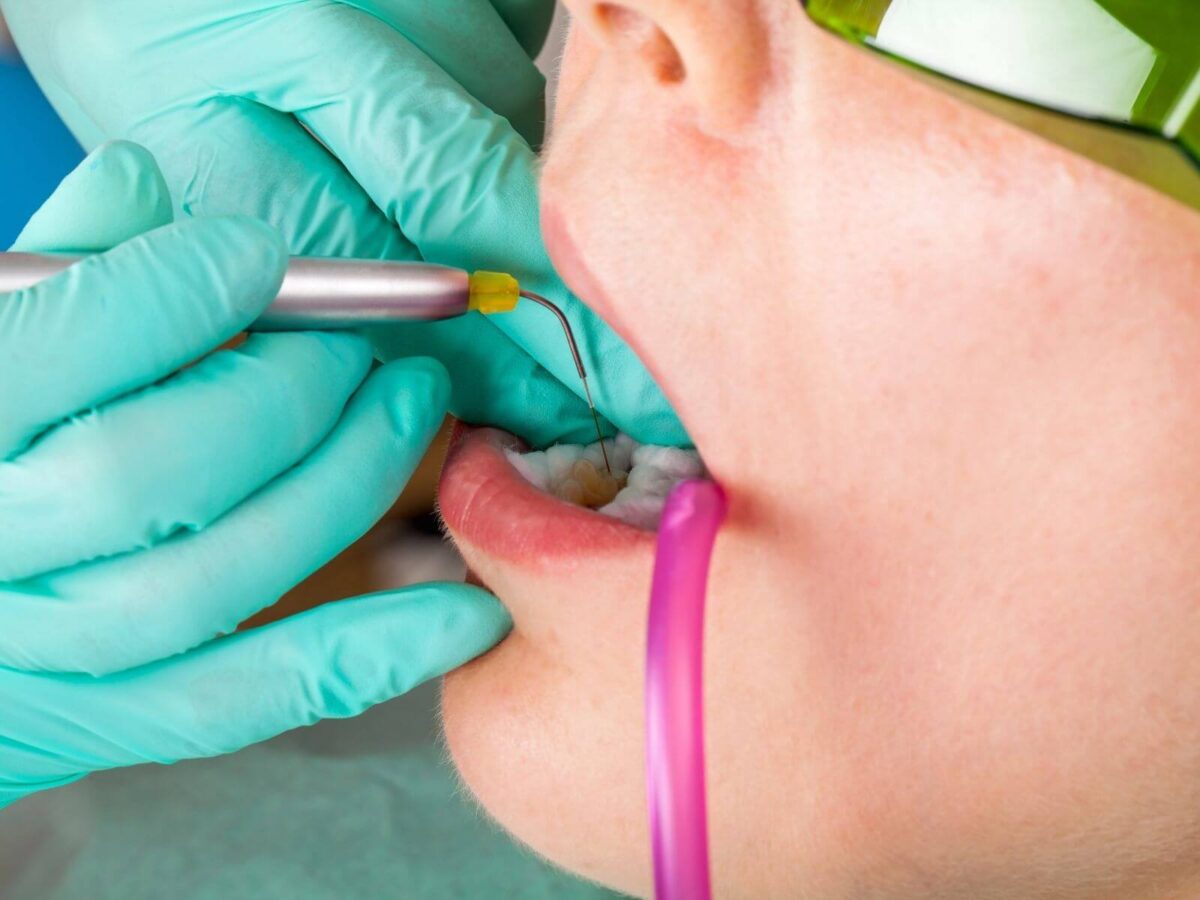Blog
Dental hygiene tips for healthy teeth & gums

Gum Disease: How Laser Therapy Can Help
Laser surgery for gum diseases is one of the latest treatment options. Your dentist uses a focused light beam to kill bacteria in this therapy. It can be beneficial to remove diseased tissue. This also promotes quick healing via a minimally invasive method. It is a great option compared to other traditional gum surgery options.
This article is a detailed guide to laser surgery. You can explore the pros and cons of the procedure with this article. You can also learn more about the costs or other details of the procedure. You can make an informed decision with this article. You will understand the risks associated with laser surgery.
Laser Surgery For Gum Diseases
Laser-based procedures are a minimally invasive technique. It improves your oral health. It also helps you prevent various gum and oral conditions. Patients experience less pain or bleeding during a laser therapy session. If compared to traditional treatments, it also promotes faster healing of healthy gum tissue.
Laser treatments offer a precise thermal beam to remove the affected tissue. Lasers can also:
- It makes a cut to remove the affected tissue in your mouth
- It can also coagulate blood vessels to form solid clots
- It helps to kill germs and bacteria to avoid infection
- It can sterilize the area
Gum diseases can be treated using various traditional methods. Scaling and root planning are the most popular among others. The dentist scrapes to remove all plaque and tartar deposits below the gum line. The gums are reattached after the clean-up. However, it might lead to bleeding, enamel damage, and other side effects.
Laser Surgery Cost
The cost of any surgical procedure usually changes depending on the geographical location. You can get dental insurance that can cover your treatment bills. Usually, laser surgery is on the expensive side. There are many factors that affect the total treatment cost. This is why it is better to consult your periodontist about these bills in advance.
Firstly, you have to pay an initial consultation fee. Then, you pay for the X-rays and other required tests. Once that is done, your dentist might suggest a scaling and root planning session. This helps them remove excess food debris from your mouth. Then, you pay for the LANAP or laser-assisted new attachment procedure. It can be anywhere from $1K to $3K.
If you do not have insurance coverage, it is better to go with laser gummy smile surgery. It is a cosmetic procedure. It costs between $600-800. It offers similar results but at an affordable price.
Procedure For Laser Surgery
The process of laser surgery is as follows:
- Your periodontist will place the laser fiber optic tip at the top of the pocket. Usually, the laser is as thin as three human hairs.
- The laser will use pinpointed light. It removes diseased and inflamed gum tissue from the pocket.
- The laser is set aside once the pocket is cleaned of damaged tissue and bacteria.
- Your periodontist then uses an ultrasonic cleaning tool or sound waves to remove tartar buildup.
- The laser is reintroduced into the pocket to clean the bottom deep. This process eliminates telltale debris.
Risks Associated With Laser Surgery
Laser surgery has its set of drawbacks. You need to keep an eye on symptoms to avoid any side effects. You must consult your periodontist beforehand about risks. You might experience signs of infection. In such cases, you need medical intervention immediately. Here are some signs of infection:
- swelling
- oozing
- worsening pain
- fever
Laser surgery complications might include:
- infection
- scarring
- permanent tissue color change
You need to keep an emergency periodontist contact to inform them about your symptoms. This way, you can make informed decisions on time.
Tips For AfterCare
Aftercare of a surgical procedure requires detailed information. You need to make certain changes in your oral care lifestyle. This will help you avoid any complications during recovery.
Let us explore aftercare tips for laser surgery. Here are some suggestions for you to follow:
- Do not brush or floss around the affected area;
- rinse your mouth with water, and let it or the mouthwash fall out gently. Do not rinse water by spitting.
- Have a soft diet, avoid foods that are hard or crunchy
- Regular brushing and flossing to improve oral hygiene
- Visiting your dentist twice a year for preventive care. You can also visit them for professional cleaning
- Abstain from using nicotine products such as cigarettes. It will slow down the healing process.
Conclusion
A perfect smile can transform your personality. This is why most people try out these new-tech treatments to improve their smile. However, laser treatments are also a great alternative to prevent gum diseases. It not only treats gum diseases but also reshapes gum. You need to consult an expert to find out the best treatment type for you.
You can visit Rockdale Dentist, TX, to learn more about laser therapies. You can also learn about the risk factors associated with this treatment. This way, you can avoid complications for a smooth transformation.


